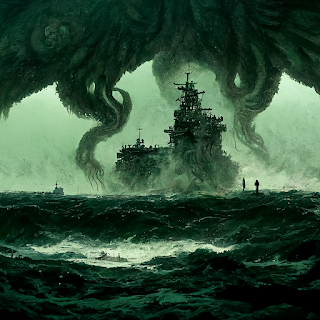The start of a project is always very exciting - there's a newness to it, although not quite in this case as it's taken a decade or so to get going. This first post was originally intended to be the first part of the book, but it's evolved a bit beyond that! No great surprise there - I can waffle on sometimes...
 People who know me are aware of my love for Paradise Lost - whilst it's not my favourite book, it is my favourite story and probably the greatest story ever told. So a few years ago I treated myself to antique copy that cost me more than I'd ever spent on a book, but that didn't matter - I had an over 300 year old copy of the book. It still has pride of place in my collection (I would love a first edition, but £50,000 is a bit beyond my means at the moment), although I did order an older version last night 😇 )
People who know me are aware of my love for Paradise Lost - whilst it's not my favourite book, it is my favourite story and probably the greatest story ever told. So a few years ago I treated myself to antique copy that cost me more than I'd ever spent on a book, but that didn't matter - I had an over 300 year old copy of the book. It still has pride of place in my collection (I would love a first edition, but £50,000 is a bit beyond my means at the moment), although I did order an older version last night 😇 )Since owning it I've described it as a 1797 edition (because apparently I can't read Roman numerals) and tonight I discovered that it is actually a 1794 edition. I'd always planned to digitise and transcribe it, so there was some sort of online record for it. Naturally someone has already done exactly that:
I guess that's my own fault for not getting on with it in the ten years or so since thinking of the project.I'm not a great believer in duplicating effort, or reinventing the wheel, so if that had been the only reason to finally start the project, then this may well as been the second, and last post.
As Vader finally realised, 'There is another!'. In this case not a sister, but a reason. I recently discovered an AI art creation tool. As an untalented creator of art, except maybe with the written word, I've always dreamed of a method to translate the images (probably best not to do all of them) in my head, into the real world somehow. Midjourney is frustratingly close to that dream. Unlike previous examples, Midjourney is capable of creating images that look composed as a single whole, rather than a collection of disparate objects because the user can't quite describe what they want.
You can follow my experiments with this wonderful tool here:
My first Midjourney created image that I was reasonably happy with. It's far from perfect and does generate some odd outputs. You prompt it with descriptions, and the system doesn't parse the language in the same way a human does. This means that writing the prompts is an art form in itself, and one that I have far from mastered, but am able to use to a certain extent. To improve my skill I decided to set myself a project (because I do have an abundance of spare time - not) to provide an end goal that also allowed for a degree of experimentation. This seemed to gel nicely with the idea of digitising the prized copy of Paradise Lost (as an aside I do own a few versions, so I'll set up a page to add them to - they won't be fully scanned though. Well, not at first). Thus a large part of the project will be using Midjourney to create artwork for this version.
Because all good things come in threes - there is a third reason. Since first reading Milton's poem I appreciated how difficult it could be to connect with. I've read it several times and also various opinions and studies (I repeat from yesterday's post that I am no scholar, but say a devoted fan), and still find myself skipping over obscure references or alien language. For many people living 300 years later it is a hard read, and while I have encountered some incidents of intellectual snobbery that one should have to learn to read it properly I thought it a shame that so many people couldn't enjoy Milton's magnificent octopus.
A not quite successfull Midjourney image that I've yet to complete - the main challenge is controlling the layout - which I haven't mastered yet.
The idea was to create a film telling the story. Maybe not the most original idea, but I wanted to be both authentic and accessible, so had the idea to make two films for the price of one! The classic version would replicate the poem exactly in form, but with visuals and audio from the modern version. The modern version would follow the same plot, but with it being expressed in a friendlier fashion, one that would connect more easily with contemporary audiences. I wasn't the first with that general idea, and that will be the subject of a future post.
It would have been an ambitious project, one currently in the 'When I win a Euromillions jackpot' list, along with some decent Lovecraft film adaptations. And being on such a list, it's probably not going to happen, but here I can at least have some creative input to show my love for John Milton's Paradise Lost.


No comments:
Post a Comment